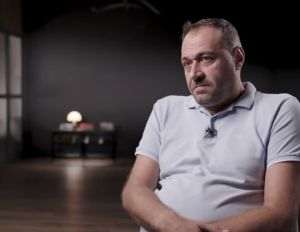The World Health Organization (WHO) is "an incompetent and corrupt organisation", claims Dr Christopher Snowdon, Head of Lifestyle Economics at the Institute of Economic Affairs, as quoted by news site brusselssignal.eu. Christopher Snowdon criticized the involvement of WHO experts in policies that should be the responsibility of the member states of the European Union, after that organization launched two days ago the "Redefine Alcohol" campaign, through which it wants to rethink the consumption of alcohol in Europe.
The WHO campaign proposes a profound change in the way European societies perceive and manage alcohol consumption, drawing attention to its health risks and negative social impact. This initiative generated a wave of reactions, both supportive and critical.
The quoted source says the WHO revealed the aim of the campaign is to raise public awareness of the hidden dangers of alcohol consumption, calling on Europeans to re-examine their personal and cultural ties to the substance. Alcohol, considered a major health risk factor by the WHO, is responsible for a number of serious conditions, including cardiovascular disease, liver cirrhosis, neuropsychiatric disorders and various forms of cancer. According to the WHO, Europe has the highest per capita alcohol consumption in the world, and this habit contributes to nearly a million deaths annually.
Dr Gauden Galea, Strategic Adviser to the WHO Regional Director for Europe, highlighted the link between alcohol consumption and various social problems, including domestic violence, road traffic injuries and other forms of injury. The WHO proposes a stricter regulation of alcohol, considering that it is far too accessible and intensively promoted. "Alcohol is too cheap, too available and too promoted," Galea said, stressing that deeper involvement of policymakers is needed to protect public health.
• WHO expert statement, contradicted by EU specialists and alcohol producers
Although the WHO's intentions to reduce alcohol consumption and promote public health are clear, the Redefine Alcohol campaign has not been well received by everyone. Critics of the initiative include Dr Christopher Snowdon, head of Lifestyle Economics at the Institute of Economic Affairs, who said the WHO had become too close to abstinence-promoting organizations and that its recommendations reflected the views of a narrow group with a radical on alcohol consumption.
According to the quoted source, the spiritsEurope association, which represents the producers of spirits in the EU, disputed the data presented by the WHO. Ulrich Adam, managing director of spiritsEurope, stressed that for most adults, the risks associated with moderate drinking are low and that while awareness is essential, campaigns should inform the public without instilling fear or anxiety. Adam also highlighted a number of positive trends in Europe, such as a 10.7% reduction in episodic binge drinking and a 37% decrease in alcohol-related road deaths.
Federations such as Belgium's Vinum Et Spiritus have also supported responsible drinking and highlighted the initiatives they have taken to protect vulnerable consumers. Geert Van Lerberghe, director general of the federation, said that while moderate alcohol consumption can be part of a balanced lifestyle, consumers must be well informed about the associated risks. The Belgian federation also supports measures to prevent alcohol consumption among minors and has implemented educational campaigns to promote a responsible attitude towards alcohol.
Another important aspect of the debate is related to the diversity of alcohol policies at national level. The WHO advocates stricter regulation, but decisions on alcohol policy vary considerably between countries, from a complete ban on sale in some states to a more permissive approach in others. This complex context also reflects deep cultural differences in Europe, where alcohol plays a significant role in many traditions and social customs.
In the European Parliament, the Lithuanian deputy Aurelijus Veryga, from the European Conservatives and Reformists (ECR) group, held a debate on the links between alcohol and cancer. According to the WHO, alcohol is associated with the risk of seven types of cancer, including breast cancer, an aspect often ignored in the public debate.
The WHO Redefine Alcohol campaign is an ambitious effort to reassess alcohol consumption in Europe, with a focus on public health and social responsibility. However, the mixed reactions to this initiative reflects the tensions between health concerns and individual liberties, and the economic impact of the alcohol industry. The dispute between the WHO, its critics and industry representatives highlights the difficulty of finding a balance between promoting health and respecting cultural and economic norms.






























































